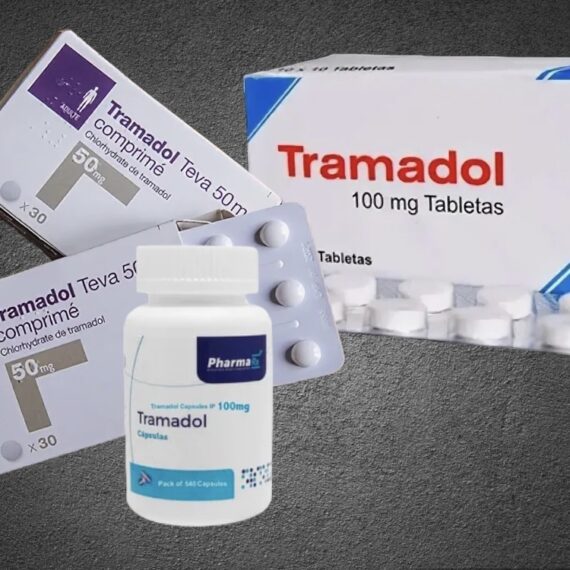Tramadol (Ultram*) capsules
$38.00
- Opioid Analgesic: Tramadol acts on the central nervous system to relieve pain by binding to opioid receptors in the brain and spinal cord.
- Moderate Pain Relief: Ultram is effective in managing various types of pain, including postoperative pain, dental pain, and musculoskeletal pain.
- Extended-Release Formulation: Tramadol is available in extended-release capsules, providing prolonged pain relief over an extended period, typically up to 12 hours.
Description
Tramadol, commonly known by the brand name Ultram, is a medication used to relieve moderate to moderately severe pain. It belongs to a class of drugs called opioid analgesics, which work by altering the way the brain perceives pain. Below is an overview of its key features, proper usage instructions, precautions, and potential side effects:
Key Features:
- Opioid Analgesic: Tramadol acts on the central nervous system to relieve pain by binding to opioid receptors in the brain and spinal cord.
- Moderate Pain Relief: Ultram is effective in managing various types of pain, including postoperative pain, dental pain, and musculoskeletal pain.
- Extended-Release Formulation: Tramadol is available in extended-release capsules, providing prolonged pain relief over an extended period, typically up to 12 hours.
- Non-Narcotic Analgesic: Tramadol has a lower potential for abuse and addiction compared to other opioids, but it still carries the risk of dependence if used improperly.
Usage Instructions:
- Tramadol capsules are usually taken orally with or without food, as directed by your healthcare provider.
- Swallow the capsule whole with a full glass of water; do not crush, chew, or dissolve the capsule.
- The dosage and frequency of Tramadol depend on the severity of pain and individual response to the medication. Follow your doctor’s instructions carefully to achieve optimal pain relief.
- Do not exceed the recommended dosage or use Tramadol for longer than prescribed, as this may increase the risk of side effects or dependence.
Precautions:
- Before starting Tramadol treatment, inform your healthcare provider about any existing medical conditions, especially if you have a history of seizures, liver or kidney disease, respiratory disorders, or substance abuse.
- Tramadol may interact with other medications, including certain antidepressants, antipsychotics, or medications that affect serotonin levels. Inform your doctor about all medications you are taking to avoid potential drug interactions.
- Use caution when driving or operating machinery, as Tramadol may cause drowsiness, dizziness, or impair your ability to concentrate.
Side Effects:
- Common side effects of Tramadol may include dizziness, drowsiness, headache, constipation, nausea, or vomiting. These symptoms are usually mild and temporary.
- Less common but more serious side effects may include respiratory depression, serotonin syndrome (characterized by agitation, confusion, rapid heart rate, fever, or sweating), or allergic reactions. Seek medical attention immediately if you experience any severe or unusual symptoms while taking Tramadol.
It’s essential to discuss the risks and benefits of Tramadol treatment with your healthcare provider, especially if you have any underlying medical conditions or are taking other medications. Adhering to the prescribed dosage and usage instructions can help maximize the effectiveness of Ultram while minimizing the risk of adverse effects.
Additional information
| Strength |
|---|
Only logged in customers who have purchased this product may leave a review.



Reviews
There are no reviews yet.